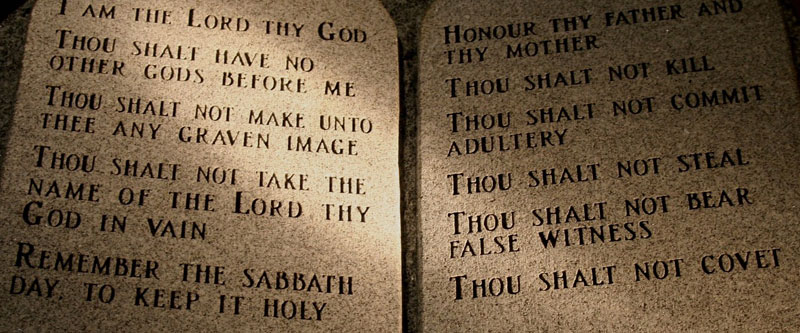“Therefore my appeal is that the PCA re-focus on the gospel ministry of the church and make that its declaration rather than repeatedly making statements on race and its related issues.”
Part 2 » Addressing the Issue
At the end of the last installment, the purpose of this series of articles was defined. A course correction in the focus of some of the elders of the Presbyterian Church in America (PCA) is needed. The issue of race threatens to divide, and yet there is an emphasis on racial sin at the more recent PCA General Assemblies (GAs). It is certainly possible that racial sin needs to be addressed in denominations, and also the PCA. For example, if there is a lack of clarity regarding this sin, or a blindness to it, denominations should make pronouncements. If a new concern arises that requires clarification, a denomination may choose to speak. Or if sin remains unaddressed, brothers are right to call the church to repentance for their complacence. To that end, the next articles in this series will examine:
-
- Whether the PCA has made a clear and thorough declaration on the sin of racism;
- Whether there are any new or extraordinary manifestations of this sin rearing its head in society or the PCA that would warrant additional teaching from God’s word;
- Whether the PCA neglects shepherding of private or public manifestations of racial sins that should be addressed.
The answer to the first question is a resounding, “Yes.” The PCA has made public, thorough, repeated, and even recent repudiations of the sin of racism, which are documented below.
The PCA and NAPARC (1977)
The PCA’s first declaration on this sin was in 1977 as part of a larger statement made by North American Presbyterian and Reformed Council (NAPARC). The 2004 MNA Pastoral Letter on Racism notes: “The Presbyterian Church in America participated in addressing the question of racial reconciliation as early as 1977, through her delegation to the NAPARC conference on race relations, and the resulting statement adopted.”[i] This statement is quoted at length in the MNA pastoral letter. It includes an acknowledgement of guilt and corporate repentance for the guilt of the church in participating in societal sins of racism:
“In repentance we acknowledge and confess that we have failed effectively to recognize the full humanity of other races and the similarity of their needs, desires, and hopes to ours; and thus we have failed to love our neighbor as ourselves… Within the church, our members have exhibited such attitudes and actions as discourage membership or participation by minority groups… Our churches have not been free from such formal actions as discourage membership or participation by minority groups. They have been guilty of a lack of positive action concerning mission to ethnic groups in their own neighborhoods and to ethnic groups at large. They have practiced a kind of cultural exclusivism, thinking of the church as “our church” rather than Christ’s. This involves the sins of pride and idolatry.” [ii]
This statement broadly acknowledges the complicity of NAPARC churches in the sin of racism and expresses repentance over it. Nevertheless, this sin was further addressed twenty-five years later at the 30th General Assembly.
The 30th General Assembly of the PCA (2002)
At the 30th General Assembly held in 2002, Nashville presbytery submitted an overture in which specifically the PCA confessed and repented of its racial sin. This overture (#20 “Racial Reconciliation”) was adopted by the Assembly. Included were the following statements:
“We therefore confess our involvement in these [racial] sins. As a people, both we and our fathers, have failed to keep the commandments, the statutes, and the laws God has commanded. We therefore publicly repent of our pride, our complacency, and our complicity. Furthermore, we seek the forgiveness of our brothers and sisters for the reticence of our hearts that have constrained us from acting swiftly in this matter.
We will strive, in a manner consistent with the Gospel imperatives, for the encouragement of racial reconciliation, the establishment of urban and minority congregations, and the enhancement of existing ministries of mercy in our cities, among the poor, and across all social, racial, and economic boundaries, to the glory of God. Amen.” [iii]
This statement is a repudiation of racism as that which breaks the law of God (thereby a sin), a public repentance over this sin, and a commitment to correct that sin to bring the proclamation of the gospel to all people. That same assembly assigned the Mission to North America (MNA) permanent committee the task of “drafting a proposed Pastoral Letter designed to set forth the truth of our position on the issue of the Gospel and race.”[iv] This pastoral letter was presented and approved at the 32nd General Assembly of the PCA in 2004.
MNA Pastoral Letter on Racism (2004)
The letter drafted by MNA and adopted by the PCA reiterates the wording from Overture 20 and acknowledges the guilt of the PCA in the sins of racism. After grounding the document in the gospel, the letter states the following:
“As we address the issue of race, we do so not because it is politically correct, or out of any pressure from outward society, but simply because it is our desire that the convicting and restoring power of God’s grace in the Gospel be applied to the manifestations of racial sin of which we ourselves are guilty, and that those who experience the negative effects of these sins might know the healing power of God’s grace – that we who have been reconciled to God through Christ might become together a holy temple in the Lord, reconciled to one another by His Spirit (Ephesians 2:20-22).” [v]
There is again an acknowledgement of responsibility for racial sin and a commitment to correct course to include all of God’s image bearers, regardless of their ethnicity, in the worship and service of the PCA. Nevertheless, the denomination revisited the sin of race again twelve years later.
Presbytery of the Mississippi Valley: A Pastoral Letter on Racism and the Gospel (2016)
As part of the 44th General Assembly, held in 2016 in Mobile, AL, an overture was submitted from Presbytery of the Mississippi Valley. This overture again revisited the racial sins of the PCA. It proposed another pastoral letter to be distributed in the PCA as a tool to educate churches on the issue of racial sin. The twelve page letter covers topics previously treated by the PCA including the theological basis for condemning racism as sin and lays out a number of responses the church can take to address this issue. As the report concludes, their letter is offered to the church with the intent to exhort to change:
“So, learn, pray, acknowledge, relate, and commit. These pastoral suggestions are offered in the spirit of “stirring one another up to love and good deeds” (Hebrews 10:24). Your presbytery writes as fellow elders, brothers, and members of the congregations of PMV. May the Lord himself grant us Gospel unity, racial reconciliation, and enable us to bear fruit in keeping with repentance (Matthew 3:8).” [vi]
This pastoral letter really does little more than repeat the theological and biblical record the PCA hard already laid out in dealing with the issue of race. And yet, two years later the PCA again addressed the issue of racial sin.
Racial and Ethnic Reconciliation Report (2018)
As part of the 44th General Assembly, the PCA also assigned an ad interim committee to “study issues related to Racial Reconciliation.” This report condemns racial sin from Scripture, as other statements before had done. However, what is of special interest from this report is the snapshot it provides of the views of race among PCA elders. The adopted report includes an extensive summary of the survey of PCA elders conducted by Lifeway Research. 2,618 elders responded (1,498 TEs to 1,120 REs) to an online survey in late 2017. Included in the results of this survey are the following findings:
-
- 72% of respondents rated some level (a little to an extreme amount) of racism in their experience in the PCA. However, 95%+ was viewed as unintentional by way of insensitive comments, etc., whether in congregations, Sessions, presbyteries, or PCA agencies.
- 94% of respondents agreed or strongly agreed that the Bible teaches racism is sinful.
- 98% of respondents agreed on some level that racism is a sin.
- 96% of respondents agreed they are willing to partner with churches with different ethnicities for the purpose of ministry.[vii]
These stats show that there is almost unanimous acceptance of the theology laid out in previous reports and pastor letters on race even as it makes the case again that racial sin is, in fact, sinful.
Has the PCA made a clear and thorough summary of its views of racial sin? Yes it has. Repeatedly. Before the 48th General Assembly there were 5 major works from the denomination and its sister churches that without reservation identify and condemn racial sin. In other words, the PCA has stated in no uncertain terms that racism is a sin that should not be tolerated in the church.
That means that, when it comes to the issue of race, further statements are not needed to clarify biblical, theological positions. The lines have been drawn and are clear. However that does not mean that further reasons may not exist to continue to revisit the issue. The next installment will consider those possibilities.
[i] “Committee on Mission to North America Pastoral Letter on Racism”, Approved at the March 2004 MNA Committee Meeting, p. 20.
[ii] Pastoral Letter on Racism, p. 21.
[iii] Pastoral Letter on Racism, p. 20.
[iv] Pastoral Letter on Racism, p. 24.
[v] Pastoral Letter on Racism, p. 3.
[vi] Pastoral Letter from the Presbytery of the Mississippi Valley, p. 16.
[vii] Minutes of the 46th General Assembly of the Presbyterian Church in America. The survey findings are included as an appendix to the report of the ad-interim committee, beginning on page 630.
Geoff Gleason is pastor of Cliffwood Presbyterian Church in Augusta, Georgia. His passion is to see the people of God grow in their faith, and those who are lost become numbered among the faithful. He has been married for 28 years and, usually, is the joyful father of 11 children ranging in age from 28 to 6, and two grandsons.








